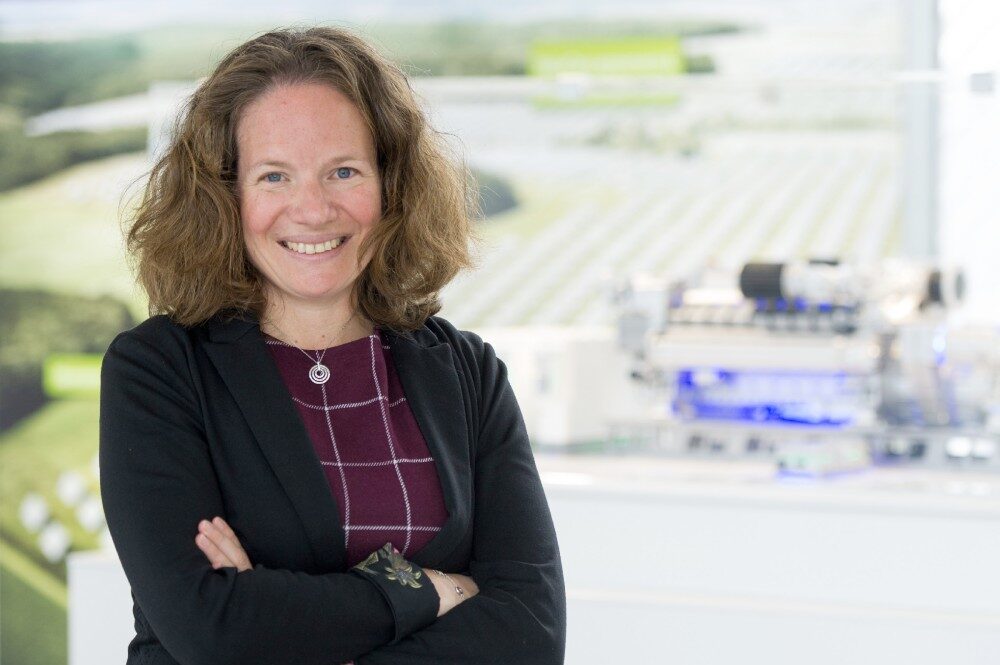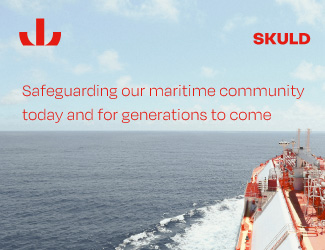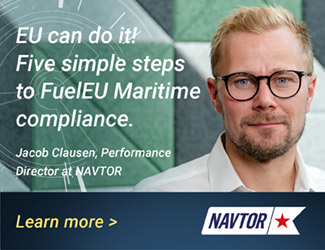While there is still much discussion in the maritime industry as to what the marine fuel of the future will be, Rolls-Royce Power Systems has a concrete proposal on the table in the shape of methanol. That and a number of other developments were the subject of a recent HANSA interview with Denise Kurtulus.
Denise Kurtulus is Vice President Global Marine, Rolls-Royce business unit Power Systems
Running engines on fossil fuels and using exhaust treatment systems to reduce emissions will not be enough in the future. What steps is Rolls-Royce Power Systems taking to make its propulsion systems more eco-friendly and align them with future demands?
Denise Kurtulus: Generally, it first of all requires that the DNA of a business is aligned with such a transformation. That is why we have formulated a strategy. We call it »PS 2030«. It says that we are aiming to develop three main pillars of our operation. The »core pillar« encompasses further development of our propulsion systems and technologies. We want to design our entire range of products to be sustainable, both the existing portfolio of combustion engines – because we will continue to be also an engine manufacturer – and future products. We will need to continue offering diesel engines in the future because, especially in the marine sector, there are performance requirements that no other technology has so far been able to meet. That means that we aim to and will continue to further optimise existing products and make them as low-emission and environmentally friendly as possible. At the same time, we are developing new technologies which will be completely carbon-neutral. That is the second pillar. It also includes our aim to become a supplier of fully integrated solutions – from bridge to propeller. The third pillar covers the service. We want to be a partner offering support based on data and digital processes over the entire life cycle of a ship. Offering service optimised by data analysis so that our customers can do their jobs in the best possible way – that is our aim.
The aim of becoming an integrated solutions supplier is one that other market players are also pursuing, often by way of acquisitions. What is your position in that regard?
Kurtulus: We also have a buy-up strategy. For example, at the end of 2020 we acquired Servowatch Systems in the UK. They are an automation systems producer specialising mainly in alarm monitoring. By taking over Servowatch, we have acquired automation expertise so that we can integrate that technology in our systems, such as our mtu NautIQ product range of automation systems. But that is just a beginning. Our focus is on the intelligence, not simply the hardware. We are creating a marine-specific solution architecture which can be adapted according to customer requirements. We offer modular hybrid solutions, which can be varied according to power and range demands by means of additional batteries, for instance. Diesel engines can then relatively easily be replaced with fuel cells or methanol engines where necessary and available. That is all supported by integrated software solutions for system monitoring, control and maintenance optimisation. So we can offer our customers the optimum solutions for onboard power generation and propulsion, which they can operate extremely efficiently thanks to data analysis.
In summer 2021, Rolls-Royce announced its net-zero strategy. That is linked to the aim of becoming entirely carbon-neutral by 2050. How does that strategy affect you as a subsidiary?
Kurtulus: The net-zero strategy applies equally to us in the business unit Power Systems. In that regard we have set ourselves and published the most ambitious targets as trailblazers within the group as part of the »Net Zero at Power Systems« project: We aim to reduce the greenhouse-gas emissions of our new products by 35% by 2030. We want to achieve climate-neutrality by 2050. That is a high aim that is very important to us and we are absolutely invested in. Among other things, we have adopted a road map for it which is backed by the appropriate financial resources. In the next ten years we will be investing roughly 500 mill. € in climate-neutral technologies.
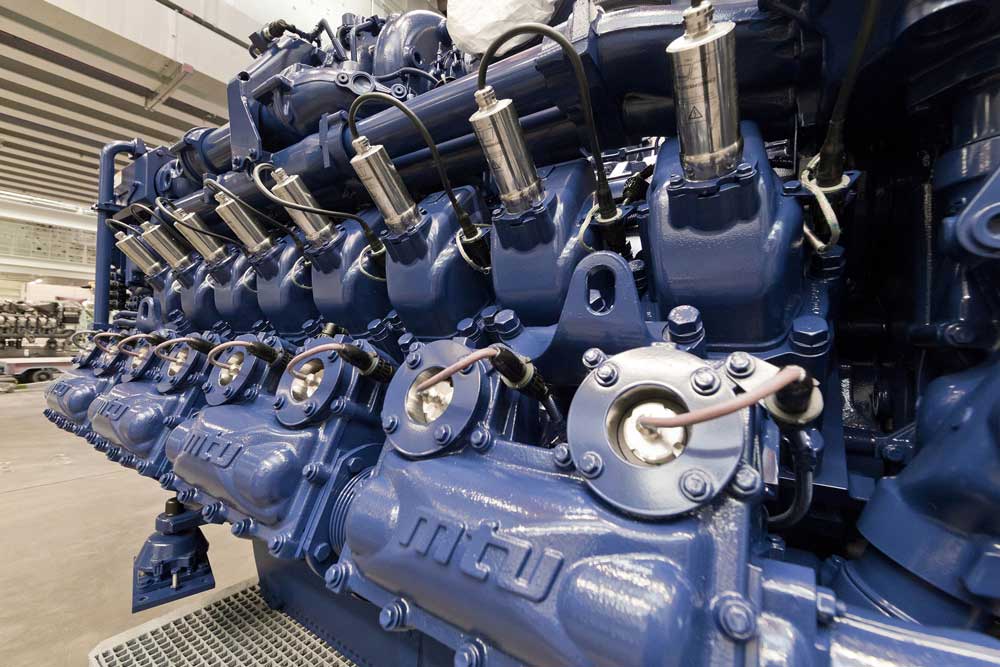
And how will that road map affect your marine product portfolio?
Kurtulus: There is great uncertainty in the maritime industry at present as far as future fuels are concerned. But we have done our homework in the past five years and initiated the »Green- & High-Tech Program«, for instance. We have put our heads together and thought about where we might be heading and what makes most sense. We have analysed the direction in which infrastructure is developing and where political decision-makers are positioning themselves. For us, the signs are pointing towards hybridisation. Currently a hybrid propulsion system still consists of a diesel engine, a power generator and batteries. We want to gradually replace the components with more eco- and climate-friendly alternatives. For our mtu Series 2000 and Series 4000 engines, for example, we already have SCR systems that substantially reduce harmful emissions. Then in the next stage from 2023 on, alternative fuels that can make a further contribution to reducing greenhouse-gas emissions come into the equation.
From 2023 on, the new generation of mtu Series 2000 and Series 4000 engines are set to be released for use with sustainable fuels. What fuels are we talking about there?
Kurtulus: They are second-generation e-fuels and bio-fuels, in other words synthetic, bio-mass based fuels according to the EN15940 standard. That includes hydrotreated vegetable oils (HVOs), for example.
Will those fuels be carbon-neutral or low-carbon?
Kurtulus: If they are produced using green processes they are carbon-neutral. These fuels can make an important contribution to reducing the carbon footprint of existing fleets. After all, ships remain in service for 20 or 30 years. So if we can reduce the emissions of ships that are already in service by using sustainable fuels, then we have already achieved a lot.
The use of fuel cells can also make a significant contribution to reducing emissions, for example if they are used for onboard power generation. We are also testing fuel cells for use as main propulsion systems. That is a major challenge, however, due to the relatively low energy density of hydrogen, especially for long-range shipping. Storage of hydrogen on board requires a lot of space. So for us, a different fuel has emerged as the preferred solution for vessels with high performance and long range demands – and that is methanol.
Why methanol?
Kurtulus: Methanol is already available at many ports today, albeit as »grey« rather than »green« methanol, but it is there. It is a liquid fuel which, like diesel, can be transported easily and with minimal risk. That distinguishes methanol from ammonia, for example. And it offers the best energy density after diesel. Even if it is only about 50% the energy density of diesel, most of the other alternative fuels measure up much worse in that regard. That is why methanol is the marine fuel of the future for us. We are currently developing methanol technologies on the basis of our mobile gas engine.
It is bold to commit yourself in that way as a business…
Kurtulus: Yes, but we want to send out a clear message by doing so. Normally we would not publish our future plans so openly – our product road map is the best kept secret we have! But in this case we have decided to position ourselves very clearly. It simply takes a pioneer to mark out the way. If we want to reach the 1.5° C target, something needs to happen urgently – and someone has to take the first step. And that is also my personal view as a private individual, by the way. I don’t want to live in a world in which my children no longer have the opportunity to live as good a life as we do today. And, personally, it is great for me to be in a position at this stage where I can combine my personal sustainability ambitions with my job. I have never been as happy in my work as I am now, because I think it is fantastic to be able to help shape the future.
If the Paris climate targets are to be achieved, the methanol has to be green. Where is it going to come from?
Kurtulus: There are regions of the world where solar or wind energy can be generated cheaply. But: the electricity has to be used immediately. It can’t be traded between Africa and Germany, for example. But what does work is to use the electricity to produce Power-to-X (P2X) fuels. So a possible approach is to supply the P2X fuels from those regions to the rest of the world.
But then you do have to rely on the fact that the green hydrogen that you need in the future will actually be produced there…
Kurtulus: Relying on it would be too passive for me. As a solution provider it is our objective to take the entire eco-system of our customers into account. That is why we are currently in talks with many fuel producers. We also take part in intensive ongoing discussions with politicians. Thus we are currently heavily involved in the talks at EU level, for example. There we can see that the correct steps are being formulated for getting hydrogen and fuels such as methanol up and running as part of the »Fit for 55« project. On the other hand, that is not yet reflected in other regulatory frameworks such as the EU taxonomy. It doesn’t all quite fit together at the moment. We are in close contact with industry and politics across the globe because we can only achieve the global climate targets together.
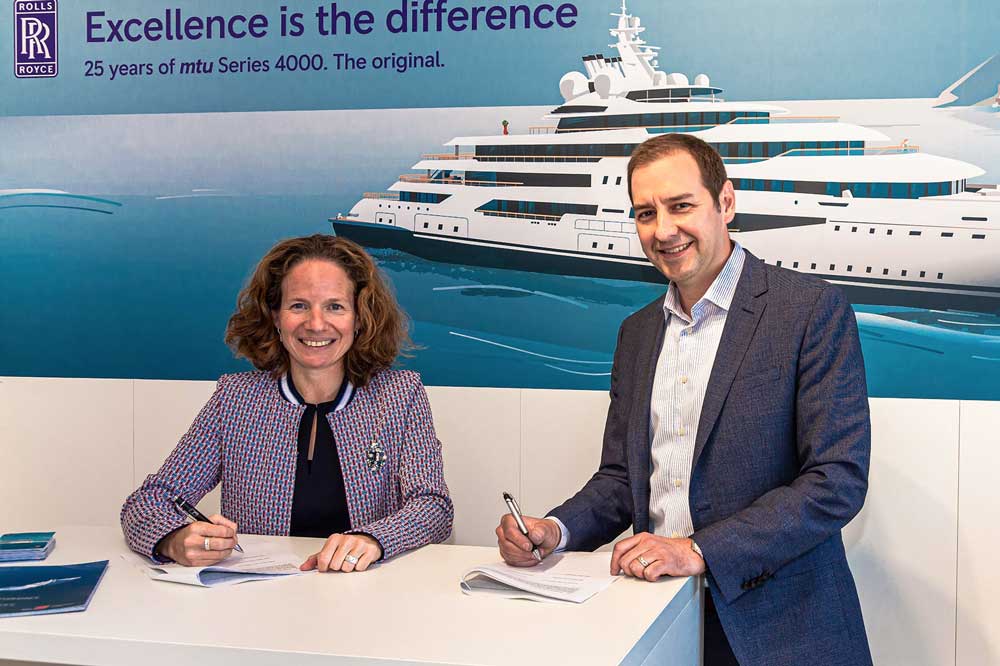
Denise Kurtulus and Michael Johnson, CEO and founder of Sea Machines (© Rolls-Royce Power Systems)
If a shipping operator asked you today what propulsion system they should install in their new vessel, let’s say a ferry, what would you say to them?
Kurtulus: It always depends on the ship, or ferry in this case. If it were a small ferry, like the ones here on Lake Constance, one could undoubtedly power them with batteries which could be recharged between crossings or at the end of the day. But a ferry operator covering larger distances and carrying more passengers and vehicles needs a completely different setup. So it depends on the customer requirements. But for the next few years I would most probably recommend a propulsion system based on a combustion engine that can be operated with as little carbon emissions as possible.
Sustainability plays an important role when it comes to mitigating global warming. Do you think that health management or autonomous systems, for example, can make a contribution in that regard?
Kurtulus: Yes, absolutely. And I believe that the potential there is still very much underestimated at present. A short while ago we agreed a partnership with the company Sea Machines, for example. It is a brilliant start-up specialising in autonomous technologies which has seen meteoric growth in the past few years. This cooperation is not primarily about climate change but about aspects such as collision avoidance, i.e. safety. But when you have technologies on board that can calculate the optimum route based on weather forecasts, for example, then you automatically save fuel and, consequently, emissions as well.
Do such technologies also assist maintenance services?
Kurtulus: Definitely. We have made great efforts to lower the maintenance costs for our mtu Series 4000 engines, for example. Originally, it was a financial issue for the benefit of our customers. But we quickly realised that it also has a climate-change benefit: if you have to replace fewer components because an intelligent system detects on the basis of constant data analysis that for example an injector does not yet need replacing, you save the resources used in the spare parts. And the maintenance engineers do not have to travel out on call as much – whether by car or plane. That all contributes to reducing CO2 emissions. And these days our KPIs are not simply based on the financial figures but on the CO2 balance as well. And that is how it should be because climate change is the biggest challenge ever faced by humanity and one which we will only overcome by decisive collective action. We are proud to be making a contribution in that regard with our technologies.



